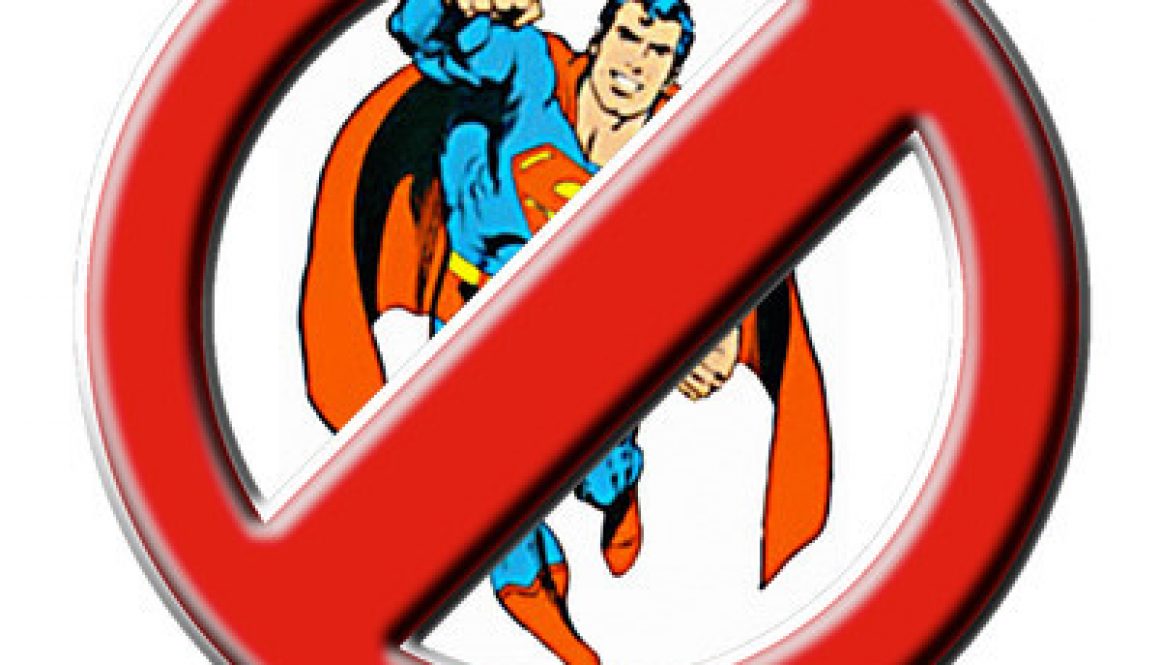No more Superheroes
The Superhero movie is a film genre that still reliably draws crowds to the cinema. The depiction of a person with superhuman powers, willing to battle for justice against forces of evil, has been a winning formula on screen for over a century. But in recent times I’ve noticed that there has been a significant shift in the way superheroes are portrayed.
Throughout the 20th century, superheroes in comic books and on the big screen not only protected the innocent and fought injustice, they were also moral guardians, demonstrating virtue and ethical excellence. I recently re-watched the classic Superman films from the 1970s and 80s with my children, and I was struck by how Superman not only had super-human powers but also a superior moral code to the mere mortals of Planet Earth. This is no longer the case. Today superheroes are not the squeaky-clean role models of yesteryear, nor are they every mother’s dream date for their daughter. They are given significant character flaws, portrayed as far-from-perfect human beings who just happen (or indeed, happen to have been cursed) to possess special powers or talents that enable them to save the world. More alarmingly, modern superheroes seem to possess no qualms about the measures required to accomplish their goal of defeating their nemesis. They seem oblivious to the collateral damage that accompanies their objective whereby the ends (defeating the bad guy) justifies the means (extreme violence and destruction).
The message which seems to be communicated today is that good character and moral fibre are now equated with weakness. Superheroes are tough individuals who have been through the school of hard knocks and often emerge as reluctant heroes who are dealing with their own demons and issues through their schizophrenic existence. Unfortunately, this attraction to superhero-type leaders with flawed characters extends beyond the fantasy world of Marvel or DC comics – it is also reflected in modern-day leaders of major corporates, sports teams and political parties. Character is regularly sacrificed on the altar of pragmatism as contemporary culture overlooks moral conduct or ethical considerations if opinion-formers believe there is a greater good at stake.
In contrast, I believe that character remains the number one priority for leaders = it must be character first:
Character before Charisma: charisma can be instrumental in building a following. But charisma without character means people can get hurt by a leader who uses them to fulfil his or her own
dreams and vision.
Character before Competence: competence is critical and leaders should seek to grow across multiple areas of competency. However, competence without character can lead to pride – the most destructive influence upon a leader.
Character before Credentials: titles, qualifications, and a proven track record can all be important in establishing credibility – but they remain secondary to having a Christ-like character which causes a leader to depend completely on God and not on his credentials.
Charisma, competence and credentials… all can build a leader’s reputation, but it is having the character of Christ formed within us that will ensure that these are held in perspective, and enable a leader to engage in building the kingdom of God, not their own empire.
[This is an extract from chapter 1 of Grab a Towel. The full chapter can be downloaded here or contact [email protected] for more information on how to obtain the book].

